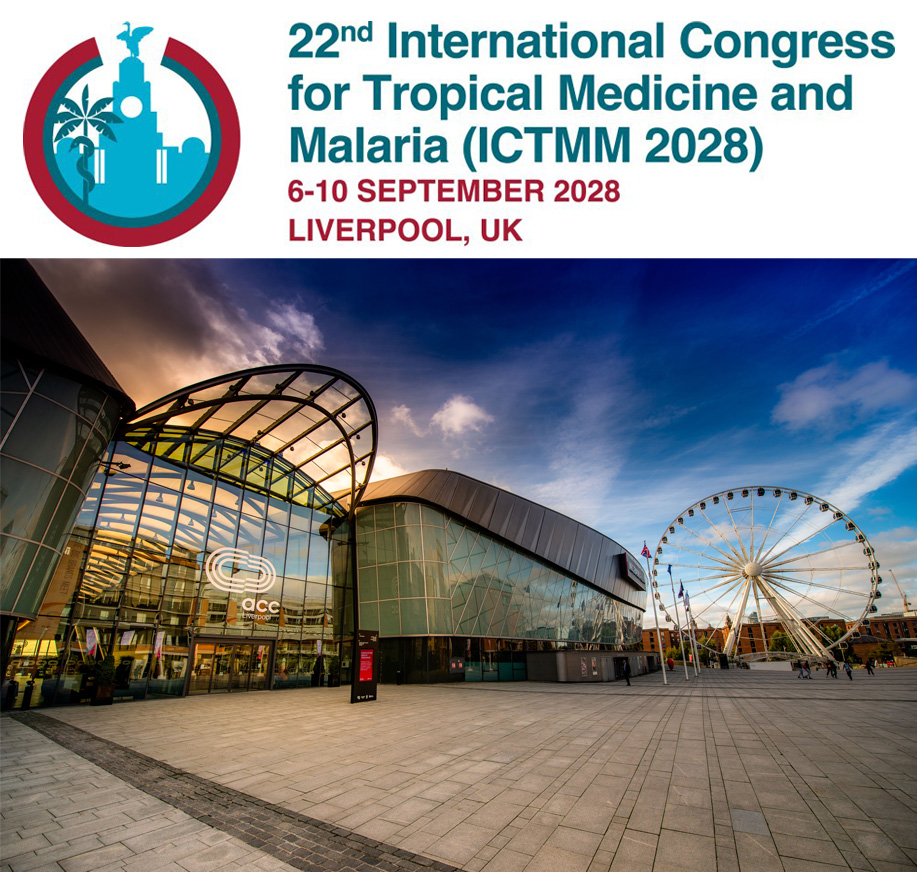
ICTMM 2028 will be taking place on 6-10 September 2028 and will be held at the ACC Liverpool, UK, in what will be the first ICTMM to be held in the UK since its inception in 1913.
This follows a successful bid by RSTMH to host the meeting, which took place at the 21st International Congress for Tropical Medicine and Malaria, in Borneo, Malaysia earlier this year.
“On behalf of the International Federation for Tropical Medicine, I am delighted to announce that the next International Congress for Tropical Medicine and Malaria (ICTMM 2028) will be held in Liverpool, United Kingdom, in September 2028.
“The 2028 congress will mark the return of the congress to the UK after 115 years, the previous UK congress and also the Federation’s inaugural congress being held in London in 1913.
“The ICTMM 2028 congress will also celebrate the return of the ICTMM to the Western Hemisphere after 23 years.
“The Federation actively seeks to emphasise its international focus by delivering its congresses in different countries, each with differing experiences in tropical medicine. The 2028 congress will be hosted by the Royal Society of Tropical Medicine and Hygiene, a longstanding organization with a truly international focus. We are thus supremely confident that ICTMM 2028 will prove to be a well-organised congress delivering the latest and best science in our field, with great opportunity for positive interactions.
“We look forward to seeing you in Liverpool in September 2028. Please mark a space in your calendars now and plan to attend.”
Malcolm Jones, President of the International Federation for Tropical Medicine
“We are incredibly excited to be hosting the 22nd International Congress for Tropical Medicine and Malaria in 2028. We look forward to bringing the meeting to Liverpool, which has a rich history in tropical medicine and malaria, and will serve as a great setting to host the inspiring discussions, partnerships and celebrations that will be sure to come out of the meeting. Over the coming months we will start planning all elements of the meeting and we hope you will be able to join us in that journey.”
Tamar Ghosh, RSTMH Chief Executive
To stay up to date with the latest developments around ICTMM 2028, including opportunities to present your work, to be on one of the scientific committees, to attend or to be a partner or sponsor , sign up to our dedicated ICTMM mailing list here.
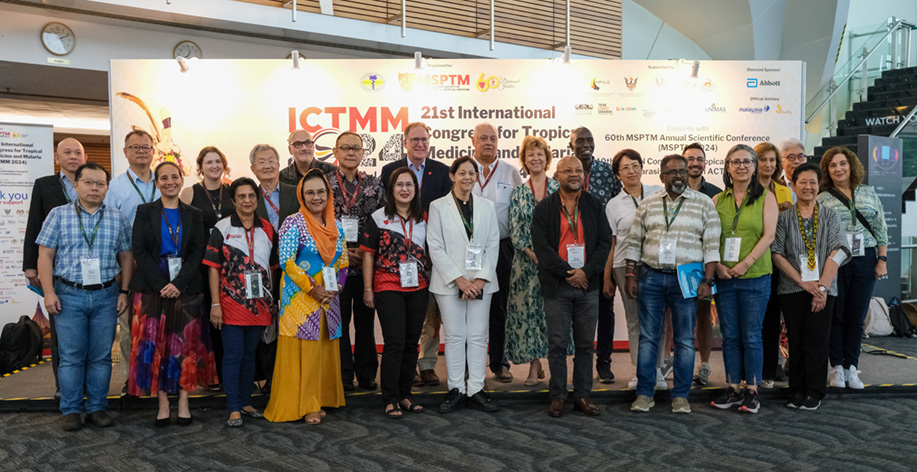
Prof Dr Shokoofeh Shamsi
Charles Sturt University (CSU), Australia
As a scientist deeply engaged in both veterinary and medical parasitology, it was a great honor to attend the board meeting of the International Federation for Tropical Medicine (IFTM), which reaffirmed the vital role of tropical medicine in addressing some of the most pressing global health challenges. What truly stood out to me was the commitment of the IFTM executives to promoting diversity and inclusivity within the field, to create a platform where voices from all corners of the world are heard is not only inspiring but essential for achieving the IFTM’s ambitious goals.
Tackling diseases that disproportionately affect marginalized communities requires diverse perspectives and inclusive approaches. The emphasis on representation and collaboration across nations, disciplines, and communities is a testament to the organization’s vision of a healthier, more equitable world.
Attending the board meeting reinforced my own commitment, to advancing One Health initiatives that address these global challenges while working alongside colleagues who share a passion for creating lasting impact.
Prof Jane Carlton
Johns Hopkins Bloomberg School of Public Health, USA
"The congress was a tremendous success, bringing together the tropical medicine and malaria communities across the world that might not otherwise meet. It was great to see old colleagues and meet new faces, all of us working towards a better understanding of the tropical infectious diseases that affect so many. A special thanks to Drs. Sylvie Manguin and Adeeba Kamarulzaman for co-organizing the "Women stewardship in Tropical Medicine" session, where we spoke about some of the challenges of being a female researcher in this field and ways to overcome them. I certainly learnt a lot, and hope that our thoughts and suggestions were inspirational to all, whatever sex or gender."
Prof Dato' Dr Adeeba Kamarulzaman
President & Pro Vice-Chancellor, Monash University Malaysia
It was great to be amongst scientists from both upper and low- and middle-income countries who came together in Malaysia, passionate about addressing the ongoing challenges posed by tropical infections including malaria. I was honored to be a part of this gathering, especially at the forum highlighting the role of women in science. After that session, I was approached by several of the younger participants who gave very positive feedback about the session, especially hearing about the panelists' journey in science and the highs and lows we all face as women scientists. If we had managed to inspire our younger colleagues even by a little, to continue and excel in their research, then I think we have achieved some of the objectives of the conference.
Prof Dr Siti Nursheena Mohd Zain
Chairperson, 21st International Congress of Tropical Medicine and Malaria
As I reflect on the remarkable journey of this event, starting from the successful bid in Bangkok in 2022 to its realization here in Kuching in 2024, I feel an immense sense of pride and gratitude. It has been a tremendous privilege to host this prestigious International Conference on Malaria and Tropical Medicine in the enchanting city of Kuching—a venue that perfectly reflects the spirit of collaboration, culture, and innovation that defines our mission.
This conference brought together an extraordinary community of global health professionals, researchers, policymakers, and industry leaders, united by a shared commitment to tackling malaria and other tropical diseases. The robust discussions and thought-provoking sessions underscored the critical importance of global collaboration and the integration of diverse perspectives in addressing these enduring health challenges.
The presence of high-profile speakers, whose groundbreaking work and profound insights enriched our program, was a testament to the calibre of this event. Their contributions, alongside the active engagement of participants, transformed the plenary sessions and workshops into vibrant platforms for exchanging ideas, sharing best practices, and envisioning actionable strategies for the future.
This congress was more than just a meeting of minds—it was a celebration of progress, a reaffirmation of shared goals, and a spark for transformative change. As I look back, I am confident that the knowledge shared, the partnerships forged, and the ideas generated during this event will leave a lasting impact on the fight against tropical diseases.
Together, we have not only commemorated the milestones achieved in our field but also renewed our collective resolve to face the challenges that lie ahead with greater determination and unity.
To every individual and organization that contributed to this success, I extend my heartfelt gratitude. Thank you for being a part of this journey. I look forward to witnessing the continued ripple effect of this conference in shaping the future of global health.
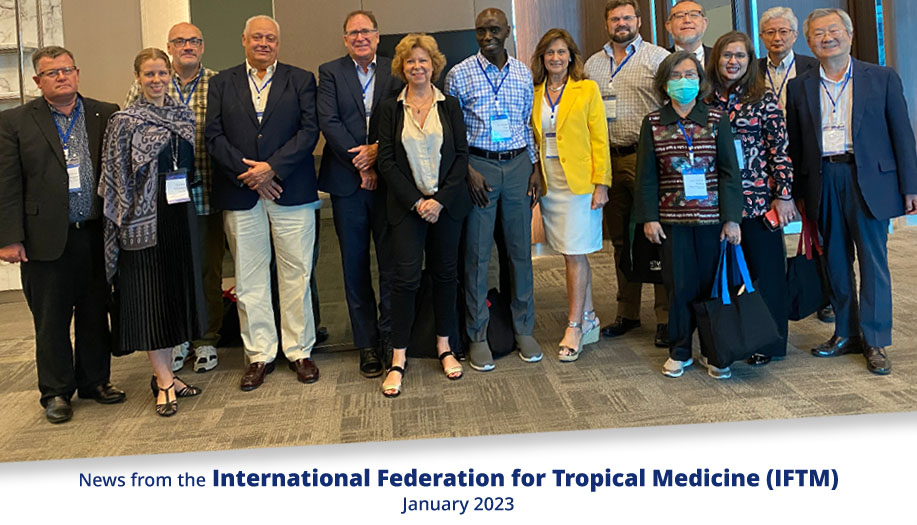
Warm greetings and a Happy New Year to everyone. We aim to send regular newsletters from IFTM to all in the research, clinical and support áreas associated with tropical medicine, in addition to the 33 IFTM federated societies, to keep you informed of activities of the International Federation for Tropical Medicine. To assist in this plan, please keep the IFTM informed of any events, conferences or news from your societies and regions to keep others in the community informed.
If you have news to share, please contact us through the IFTM email address: (sylvie.manguin@ird.fr).
The world is experiencing a major pandemic caused by SARS-CoV-2, the Coronavirus causing COVID-19. This disease first entered the human population in Hubei province, China, in mid-November 2019 and manifested in Wuhan, the largest metropolitan area of Hubei, when a cluster of patients were admitted to hospital with a 'severe pneumonia of unknown cause' in early December. Although humanity has survived previous pandemics by infectious agents, the present one is unprecedented in its capacity to take advantage of modern globalization allowing for massive transborder spread at a surprising speed.
In the Northern Hemisphere, Europe and North America are the regions most affected at present, with only a very few countries beginning the descending arm of the epidemiological curve. South Korea and Japan are making efforts to avoid secondary outbreaks to appear, whereas China is now suffering from the boomerang of the pandemic. In the Southern Hemisphere, several nations quickly decided to close frontiers, although generally too late, as they already had the disease inside. All indications reveal that the Southern Hemisphere will not escape from the massive problems of this disease.
Besides health professionals on the frontline, we need scientists to make research, develop, and analyze for safety and efficacy useful treatments, antivirals and vaccines, and epidemiologists to analyze the quickly changing epidemiological data, as well as psychologists to help people adapt to the confinement measures, economists to analyze economic consequences, as well as engineers and others to innovate solutions. All of this is not only crucial but urgent.
Recent projections describe a public health problem to extend up to 2022, when not 2024, depending on factors whose influence on the disease transmission are in great part still unknown, such as the impact of the potential protection by immunity and the higher summer temperatures in the Northern Hemisphere. The aforementioned assumptions apply of course in the present situation of the pandemic and as long as no efficient specific treatment, prophylactic drug, antiviral and vaccine are discovered, produced in sufficient amounts and distributed as to reach as much population in the shortest time.
Similarly, as health professionals from throughout, many members of the IFTM Board and Advanced Board have been involved in one or other aspect of the pandemic from its early beginning. Their publications can be obtained in the following links:
- The novel Coronavirus (SARS-CoV-2) is a one health issue
IFTM wants to express its deepest sympathies to all victims of this disease and to all health professionals who have lost their life in the fight against this pandemic. IFTM encourages scientists and experts to increase efforts to save lives in the present critical situation and to look for all kind of potential useful tools, specific treatment, prophylactic drug, antiviral and vaccine.
The Board of the International Federation for Tropical Medicine was looking at the possibility of having an official scientific journal after many years. The definitive decision was taken at the Meeting of the IFTM Board and Advanced Board held on Tuesday 17 September 2019 in the Liverpool School of Tropical Medicine (LSTM) at the occasion of the European Congress of Tropical Medicine and International Health (11th ECTMIH) in Liverpool, UK.
After a detailed presentation of the journal by Dr. Dale Seaton, Executive Publisher of Elsevier, New York, USA, the proposal was accepted, the name of the journal was proposed to be kept, and support was given to Dr. Malcolm Jones, IFTM Vice-President and President-Elect, Brisbane, Australia, and Dr. Aileen M. Marty, member of the IFTM Advanced Board, Miami, USA, to become the two Editors-in-Chief of the journal.
The IFTM official journal started with a high Cite Score of 4.02 according to Scopus. Moreover, in December 2019, Clarivate confirmed that the journal "One Health" was accepted to be indexed for Impact Factor (IF) in SCIE (IF database), which means that it should get a 2019 IF in the JCR subsequent year.
"One Health" is an open access journal. Scientists and researchers who are members of the national societies federated in IFTM have a very significant discount in publication fees. For a complete information on this journal, please enter in the following website: https://www.journals.elsevier.com/one-health
The International Federation for Tropical Medicine (IFTM) was first established in 1988, at the occasion of the XII International Congress for Tropical Medicine and Malaria (ICTMM) held in Amsterdam, The Netherlands. The first President-Elect was Doctor Adetokunbo O. Lucas.
The principal function of the Federation is the promotion of periodic International Congresses on Tropical Medicine and other appropriate meetings. Presently, in a time where information and communication reached such an important status in the modern society and scientific and medical communities, additional challenges of the Federation include the dissemination and exchange of knowledge in Tropical Medicine, and the support of cooperation between the national federated societies.
(Published in September 2019) (Published in August 2018) We would like to announce that the book entitled "Towards malaria elimination - A leap forward", edited by Sylvie Manguin (sylvie.manguin@ird.fr, Institut de Recherche pour le Développement, IRD-France) and Vas Dev (nimr.sonapur@gmail.com, retired from National Malaria Research Center, India) and dedicated to the late Prof Ogobara Doumbo (author of Chapter 15), has just been published. The book is in open access through this link: http://www.intechopen.com/books/towards-malaria-elimination-a-leap-forward (presently the link directs the reader to 17 chapters, but the full book (456 pages), with its dedication to the late Ogobara Doumbo, is available upon request to the editors and authors of the book). You're welcome to diffuse this link to your colleagues, students, libraries, networks, etc. Please don't hesitate to contact the authors if you have any requests, comments, suggestions or doubts. See below the text on the 2nd page of the book : "The book entitled ‘Towards Malaria Elimination – A leap forward’ is one little step forward in our knowledge on this disease that provides a global view of the current declining trends of malaria transmission. Experiences of subject experts are presenting updated information on disease epidemiology and control at the national/regional level highlighting constraints, challenges, accomplishments and prospects of malaria elimination. This book is dedicated for the benefit of researchers, scientists, program and policy managers to work towards the WHO goal of reaching a ‘Malaria-Free World by 2030’. Some major issues that emerged included multidrug-resistant malaria and pandemic risk, vaccines, cross-border malaria, asymptomatic parasite reservoir, the threat of Plasmodium vivax and Plasmodium knowlesi, insecticide resistance in Anopheles vectors and outdoor malaria transmission. New and innovative approaches are presented as well as successful stories of malaria-free countries that could serve as examples. Malaria elimination will be a big leap forward of this millennium in service to the mankind." (Published in October 2017) (Published in September 2017)
The International Federation for Tropical Medicine awards the IFTM Medal to Prof. Dr. David Rollinson of the British Museum of Natural History, in recognition of his wide and important contributions to science and tropical diseases, mainly in the field of schistosomiasis in Africa, throughout his lifelong career.
The Medal Ceremony will take place at the occasion of the Autumn Symposium 2017 of the British Society for Parasitology to be held at the Linnean Society, Burlington House, London, on Thursday September 28th.
The programme of this special meeting can be found here. (Published in March 2017) In the final session of the meeting, Santiago Mas-Coma was in charge of giving the young scientist awards, including a first prize and three highly commended awards (Figure 2). Furthermore, he had the occasion to visit the "Lawa Lake model" which concerns a a markedly effective integrated Opisthorchis viverrini Eco-Health control approach guided by Banchop Sripa. This initiative has decreased the human prevalence from 60% to 10% in a highly endemic area where liver fluke-induced cholangiocarcinoma and liver cancer percentages are among the highest in the country (Figure 3). (Published in October 2016) Professor Doctor Dr Honoris Causa Santiago Mas-Coma is Director and Chairman of the World Health Organization (WHO/OMS) Collaborating Centre on Fascioliasis and Its Snail Vectors and of the FAO-United Nations Reference Centre for Parasitology at the Departamento de Parasitologia, Facultad de Farmacia, Universidad de Valencia and Director of the International Master Course on Tropical Parasitic Diseases. He is also Expert Member of the WHO, Member of the International Order of Merit, Adviser of the International Atomic Energy Agency (IAEA) and Editorial Adviser of the journal PLoS Neglected Tropical Diseases (PLoS). He is Past-President of the European Federation of Parasitologists and of the Spanish Society of Parasitology (SEP) and Member of the Federation of Parasitologists (WFP). (Published in September 2016) (Published in August 2016) Those that are interested please write directly to It is important to emphasize that the book can also be entirely downloaded for free at the site http://www.intechopen.com/books/anopheles-mosquitoes-new-insights-into-malaria-vectors. * The price includes the print version and delivery. ........................................................................................................................................... (Published in May 2016) Professor Chai sent a message on this subject to all representatives of the IFTM Federated National Societies by Email. We have to acknowledge, once more, Professors Filomeno Fortes and Jong-Yil Chai that helped the IFTM with their expertise and time (2012
to 2014 and 2014 to 2016, respectively) and to warmly welcome Professor Sylvie Manguin to her new office. Cláudio Tadeu Daniel-Ribeiro
(Published in August 2014) ISBN: 978-85-7541-440-8 Unprecedented initiative in the world, the book compiles the available knowledge on the subject and presents the state-of the-art in paleoparasitology – term coined about 30 years ago by Brazilian Fiocruz researcher Luiz Fernando Ferreira, pioneer in this science which is concerned with the study of parasites in the past. Multidisciplinary by essence, paleoparasitology gathers contributions from social scientists, biologists, historians, archaeologists, pharmacists, doctors and many other professionals, either in biomedical or humanities fields. With varied applications such as in evolutionary or migration studies, their results often depend on the association between laboratory findings and cultural remains. Signed by authors from various countries such as Argentina, USA, Germany and France, the book has chapters devoted to the discoveries of paleoparasitology on all continents. Regular price: U$49 To acquire the book at the promotional price, please send to malaria@fiocruz.br or to sbach@sbachbooks.com.br a copy of the proof of affiliation to an IFTM Federated Society
Sales (Published in November 2013) During this year of 2013, we are celebrating the Centennial of the First International Congress for Tropical Medicine (ICTM) that occurred in London, in 1913. For this reason, the International Federation for Tropical Medicine (IFTM) decided to create events alluding to the date, during National or Regional Conferences in countries with Federated Societies. For historical records, one must register that one other International Congress, dedicated specifically to malaria, appeared in 1925 in Rome, and that the 2nd IC on Tropical Medicine and the 2nd IC on Malaria occurred in Cairo and Algiers, in 1928 and 1930 respectively. But it was in 1938, in Amsterdam, that the two conferences merged and began to occur with the current name and acronym (International Congress for Tropical Medicine and Malaria, ICTMM). It was also in Amsterdam, during the course of the twelfth ICTMM, exactly 50 years later, that appeared the IFTM, with the primary goal of ensuring the quality and roaming of the ICTMM over the five continents. The first Commemorative Event occurred during the II Portuguese Congress of Tropical Medicine. A table chaired by our colleague Filomeno Fortes (Secretary General of the IFTM) occurred with the theme of "Malaria Control in Africa" having as speakers Stephane Duparc (Switzerland), Sylvie Manguin (France), Mavy Hernandez (Cuba), Katrina Lee (South Korea) and Claude Fourant (France). The second event was in Luanda, Angola, on 06.13.2013, in the form of a "Scientific Conference on Tropical Diseases and Endemic Diseases", chaired also by Filomeno Fortes, and consisting of three sessions (Challenges of Tropical Medicine, Neglected Tropical Diseases and Endemic Diseases), to which I had the honour to attend and participate. The third event took place in Campo Grande, MS, Brazil during the realization of the "49th Congress of the Brazilian Society of Tropical Medicine" (SBMT). A panel, chaired by Carlos Henrique Costa Nery (thus the President of SBMT) and myself, focused on "Tropical Medicine inside and outside the Tropics" having CHN Costa, Jong-Yil Chai (Treasurer IFTM, South Korea) and myself as speakers. From the other events planned, two have already occurred: one in Perth, Australia with a roundtable on "Parasitic Zoonoses and Tropical Medicine" in the "24th International Conference of the World Association for the Advancement of Veterinary Parasitology" (WAAVP, 25-29/8/2013 ), with the presence of Santiago Mas-Coma, Vice President of IFTM, and one other in Copenhagen, Denmark ("8th European Congress on Tropical Medicine and International Health", ECTMIH, 9-13/8/2013), with a round table entitled "Tropical Medicine and Global Health : how to walk side by side" under my Presidency and that of Francesco Castelli (Italy) and having Eduardo Gotuzzo (Peru, Past President of the IFTM), José Rodrigues Coura (Brazil, Past President of the Brazilian Tropical Medicine Society), Thomas Junghanss (Germany, Past President of the Federation of European Societies for Tropical Medicine and International Health) and S Mas-Coma (Spain, Vice-President and President Elect of the IFTM) as speakers. Two other roundtables still ensue: "The pathogenesis of vivax malaria", chaired by myself and Ric Price) in Washington, United States, during the "62nd Meeting of the American Society of Tropical Medicine and Hygiene" (ASTMH, 13-17/11/2013) with the presence of Nicholas Anstey (Australia), Fabio Costa (Brazil), Hernando del Portillo (Spain) and Marcus Lacerda (Brazil); and "The paradigm shifts to the Elimination of Parasitic Diseases" in the "Joint International Meeting of Tropical Medicine, 2013" (JITMM 2013 11-13/12/2013) in Bangkok, Thailand with the presence of members of the Presidency - CT Daniel-Ribeiro or S Mas-Coma and JY Chai, and members of the IFTM Expanded Board (Shigeyuki Kano, Japan; Srisin Khusmith, Thailand; and Xiao-Nong Zhou, China) among others.
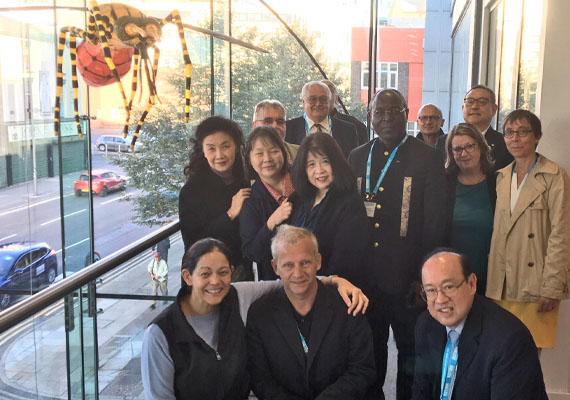
Visit of the Board and Expanded Board of the International Federation for Tropical Medicine to the Liverpool School of Tropical Medicine on the September 16th, 2019.
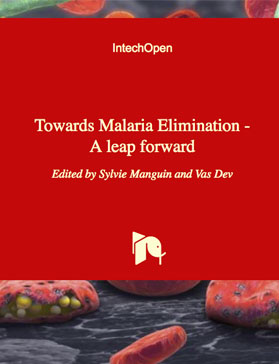 New book: "Towards malaria elimination –
New book: "Towards malaria elimination –
A leap forward"Ceremony of IFTM Medal Award to Prof. David Rollinson at the Linnean Society in London
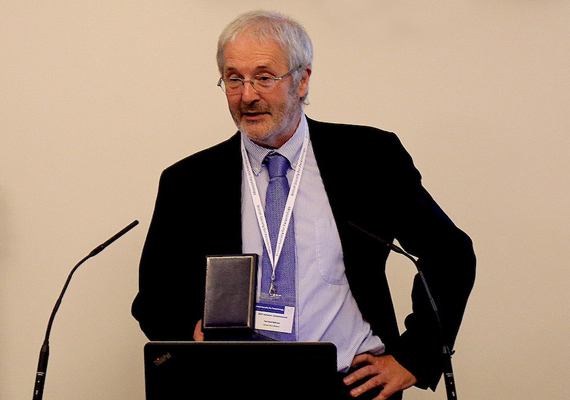
IFTM MEDAL AWARDED TO PROF. DR. DAVID ROLLINSON (UK)
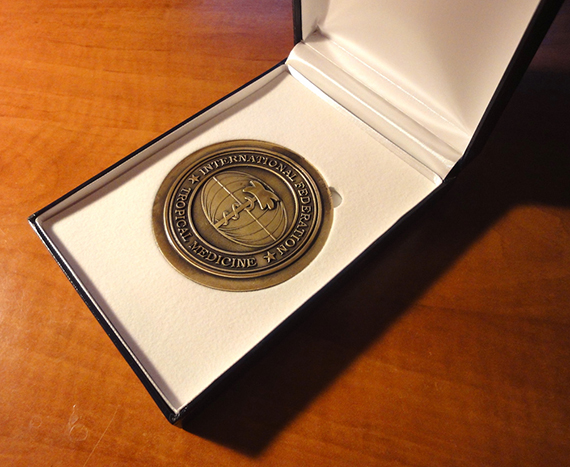
IFTM President Awards Best Young Scientists in Khon Kaen, Thailand
 Prof. Dr. Santiago Mas-Coma made the first plenary speech at the successful Asian Neglected Tropical Disease Conference (NTDASIA2017) organized by Prof. Dr. Banchop Sripa in Khon Kaen, Thailand (Figure 1), last 8-9 March 2017. That opening session was chaired by Prof. Dr. Jitra Waikagul, member of the IFTM Executive Board and the scientist leading the Organizing Committee of the next ICTMM 2020 to be held in Thailand, Bangkok.
Prof. Dr. Santiago Mas-Coma made the first plenary speech at the successful Asian Neglected Tropical Disease Conference (NTDASIA2017) organized by Prof. Dr. Banchop Sripa in Khon Kaen, Thailand (Figure 1), last 8-9 March 2017. That opening session was chaired by Prof. Dr. Jitra Waikagul, member of the IFTM Executive Board and the scientist leading the Organizing Committee of the next ICTMM 2020 to be held in Thailand, Bangkok.
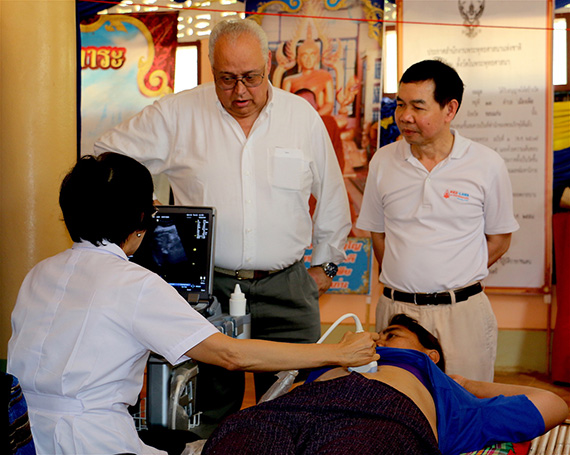
Professor Santiago Mas-Coma is the new President of the IFTM
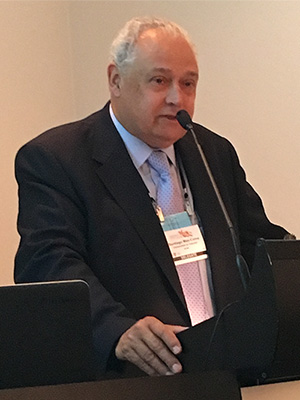 In the last 21st September, Professor Santiago Mas-Coma, President Elect since 2012, became the new President of the International Federation for Tropical Medicine.
In the last 21st September, Professor Santiago Mas-Coma, President Elect since 2012, became the new President of the International Federation for Tropical Medicine. From 29th June to 1st July, 2016, Professors Cláudio Tadeu Daniel-Ribeiro and Santiago Mas-Coma realized an inspection visit to the City of Lyon (France), to evaluate the site infrastructure in view of the French pre-candidature to host the XXI ICTMM in 2024. The present and past Presidents report is presented here.
From 29th June to 1st July, 2016, Professors Cláudio Tadeu Daniel-Ribeiro and Santiago Mas-Coma realized an inspection visit to the City of Lyon (France), to evaluate the site infrastructure in view of the French pre-candidature to host the XXI ICTMM in 2024. The present and past Presidents report is presented here.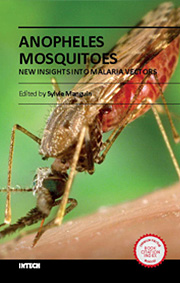 "InTechOpen offers a 50% discount (90 Euros* instead of 180 Euros - per single copy) for members of National Societies federated to the IFTM interested in acquiring the book of Sylvie Manguin (2013) "Anopheles mosquitoes: New insights into malaria vectors".
"InTechOpen offers a 50% discount (90 Euros* instead of 180 Euros - per single copy) for members of National Societies federated to the IFTM interested in acquiring the book of Sylvie Manguin (2013) "Anopheles mosquitoes: New insights into malaria vectors".
Dr. Manguin to obtain the promotion code.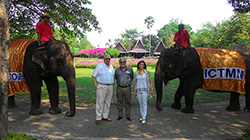 From March 12th to 19th 2016, Professors Cláudio Tadeu Daniel-Ribeiro and Santiago Mas-Coma realized an inspection visit to Bangkok to evaluate the site infrastructure in view of the Thai candidature to host the XX ICTMM in 2020. The present and past Presidents report is presented here.
From March 12th to 19th 2016, Professors Cláudio Tadeu Daniel-Ribeiro and Santiago Mas-Coma realized an inspection visit to Bangkok to evaluate the site infrastructure in view of the Thai candidature to host the XX ICTMM in 2020. The present and past Presidents report is presented here.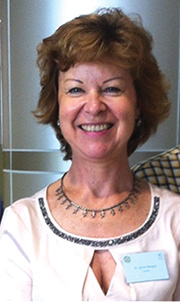 It is a pleasure to inform the Delegates and Representatives of the National Tropical Medicine or Parasitology Societies Federated to the IFTM, that Professor Sylvie Manguin* (Montpellier, France) has joined the Board of the IFTM as its Secretary General, replacing our friends and collaborators Professors Filomeno Forte, who had to leave the board in 2014, and Jong-Yil, who kindly accepted to accumulate both functions (Treasurer and Secretary General) from that time up to now.
It is a pleasure to inform the Delegates and Representatives of the National Tropical Medicine or Parasitology Societies Federated to the IFTM, that Professor Sylvie Manguin* (Montpellier, France) has joined the Board of the IFTM as its Secretary General, replacing our friends and collaborators Professors Filomeno Forte, who had to leave the board in 2014, and Jong-Yil, who kindly accepted to accumulate both functions (Treasurer and Secretary General) from that time up to now.
President of the IFTM
A Co-Edition Editora Fiocruz / IFTM
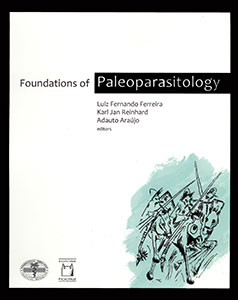 Foundations of Paleoparasitology
Foundations of Paleoparasitology
Luiz Fernando Ferreira, Karl Jan Reinhard and Adauto Araújo (editors)
Co-edition: Editora Fiocruz (Oswaldo Cruz Foundation) and IFTM (International Federation for Tropical Medicine)
Susan Bach Books
E-mail: sbach@sbachbooks.com.br
Tel: +55-21-2539-3590
Fax: +55-21-2527-6940
http://www.sbachbooks.com.br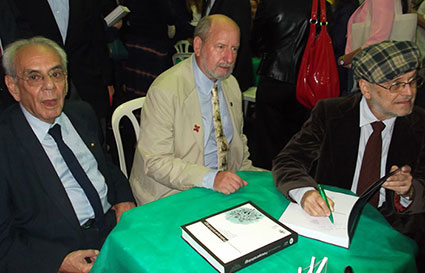
Centennial of the First International Congress for Tropical Medicine (ICTM) held in London in 1913
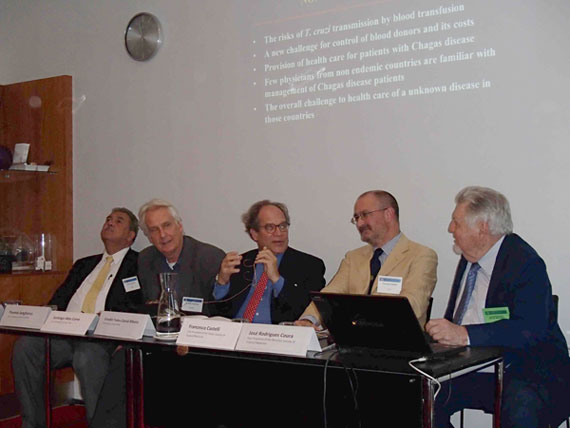
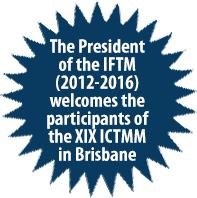
It’s a great pleasure and a real honor, as the President of the IFTM, to welcome you all to this Australian ICTMM. You all know that it is the XIX edition of this Congress, but, very probably, few of you know that the first ICTM occurred in London in 1913, 103 years ago. Probably most of you also don’t know that the IFTM - that will be presided by my friend Professor Santiago Mas-Coma, the President Elect - from Wednesday on, is much younger; since it was born in 1988 to promote interaction of between the National Tropical Medicine and related Societies, to help the creation of other Associations where they do not exist, and to guarantee the quality and itinerancy of the ICTMM in the different continents. As the 7th President of the IFTM story, I can say that we have been trying to keep our commitments
* * *
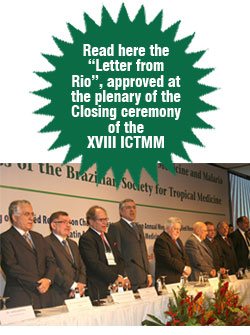
Opening ceremony of the XVIII International Congress for Tropical Medicine and Malaria and XLVIII Congress of the Brazilian Society of Tropical Medicine - ICTMM 2012
With, from the left to the right, Professors Carlos Henrique Nery Costa, President of the Brazilian Society of Tropical Medicine; Wilson Duarte Alecrim, Secretary for Health of the Amazonas State, Brazil ; Cláudio Tadeu Daniel-Ribeiro, ( then) President Elect of the IFTM and President of the Scientific Committee of the XVIII ICTMM; Alexandre Padilha, Ministry of Health – Brazil; José Rodrigues Coura, President of the ICTMM; Marcos Fernando de Oliveira Moraes, President of the Brazilian National Academy of Medicine; Carlos Grabois Gadelha, Secretary for Science and Technology of the Brazilian Ministry of Health; Paulo Gadelha, President of the Oswaldo Cruz Foundation – Brazil; Robert Sebbag, Vice-President for Access to Drugs of Sanofi-Aventis.
Visit the site of the last ICTMM 2012 CONGRESS
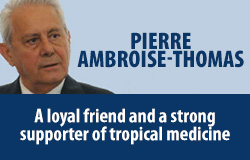
Our colleagues from the Brazilian Society of Tropical Medicine were already informed of the passing of Professor Pierre Ambroise-Thomas (MD 1963, DSc 1969) on March 16, 2014 through a tribute to Pierre as a great physician and extraordinary person. In recognition of Pierre’s many virtues, we share with you the thoughts imparted back in September 2015 during the celebration of the 20 years of the Laveran and Deane Seminar on Malaria on Itacuruçá Island, when he was made Emeritus Professor of the Seminar, in memoriam, as these thoughts remain true today.
>> read more

Professor Cláudio Tadeu Daniel-Ribeiro, new president of the IFTM, talks about difficulties and his expectations for the next four years, in an interview to the Brazilian Society of Tropical Medicine.
>> read more

Professor Carlos H. N. Costa, President of the Brazilian Society of Tropical Medicine, comments the existence and functioning of National Societies of Tropical Medicine in the developed and developing World.
>> read more
Mr Harry Sulzer, son of our colleague Dr. Alexander J. Sulzer (1922-2005), would like to correspond / communicate with a colleague of his father who is familiar with his publications and and professional work with Malaria and other Tropical diseases. Any person who fits this profile and is willing to contact Dr Sulzer's son is requested to contact him directly at the mail hesulzer@gmail.com.

29th Annual Meeting of the German Society for Parasitology
15–17 March 2021 • DIGITAL
Please visit website www.parasitology-meeting.de for more information.
21st International Congress on Tropical Medicine and Malaria, 2024. Sarawak, Malaysia.
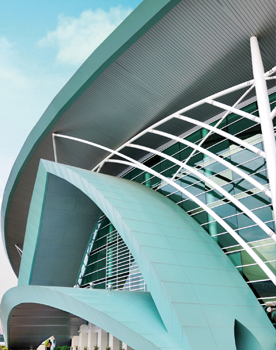
The Congress venue is at the "Borneo Convention Centre Kuching (BCCK)".

The Henrique Aragão Medal, created by the Oswaldo Cruz Foundation during the IV International Congress on Malaria and Babesiosi held in Rio de janeiro, was awarded, for the 5th time, during the closing ceremony of the XVIII ICTMM.
The laureates were Professors
Victor Nussenzweig and William B Collins.
 Dr. Victor Nussenzweig was graduated in Medicine by the University of São Paulo School of Medicine, Sao Paulo, Brazil. He is currently the Hermann M. Biggs Professor of Preventive Medicine; Department of Pathology of New York University of Medicine.
Dr. Victor Nussenzweig was graduated in Medicine by the University of São Paulo School of Medicine, Sao Paulo, Brazil. He is currently the Hermann M. Biggs Professor of Preventive Medicine; Department of Pathology of New York University of Medicine.
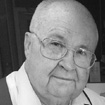 Dr. William E Collins received his BS degree at the Michigan University in 1951, his PhD from the Rutgers Univ. in 1954 and is presently (since 1981) a Research Medical Biologist at the CDC (Atlanta)
Dr. William E Collins received his BS degree at the Michigan University in 1951, his PhD from the Rutgers Univ. in 1954 and is presently (since 1981) a Research Medical Biologist at the CDC (Atlanta)
>> HB Aragão by L Deane
>> HB Aragão by WL Paraense

 Arthur Ferguson MacCallan (1872-1955), the trachoma pioneer
Arthur Ferguson MacCallan (1872-1955), the trachoma pioneer
>> read more
 Alphonse Laveran (1845-1922)
Alphonse Laveran (1845-1922)
Nobel Prize in Medicine (1907) for the discovery of the agent of malaria
>> read more
 Camillo Golgi (1843-1926) and the “Mystery of Periodic Fevers”
Camillo Golgi (1843-1926) and the “Mystery of Periodic Fevers”
>> read more
 Patrick Manson (1844-1922) and the First Steps of
Tropical Medicine
Patrick Manson (1844-1922) and the First Steps of
Tropical Medicine
>> read more
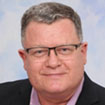
Published in 06 October 2023
Peter A Leggat (1961-2023)
The following memorial is adapted from a message sent to the Members of the Australian College of Tropical Medicine, by their president, Professor Colleen Lau, of the University of Queensland.
It is with great sadness that I am writing to inform you that Professor Peter Leggat, our Immediate Past President, passed away peacefully in Brisbane on 20 September 2023.
Peter was a much respected and beloved friend and colleague in the world of travel medicine and tropical medicine, and one of Australia’s greatest contributors to these fields. He has also been a wonderfully supportive and inspirational mentor for many in Australia and around the world. Always a gentleman, Peter’s quiet wisdom and calm guidance will be sorely missed by so many of us. Peter was a medical doctor, scholar, teacher, enabler, innovator, and most of all, a great leader. He had many talents, skills, areas of expertise, and countless accolades.
As a Founding Fellow of the ACTM in 1991, Peter contributed enormously to the College over many decades. He served five terms as President of the ACTM (1996-1998, 2002-2004, 2006-2008, 2016-2018, and 2020-2022), and held Executive positions as Honorary Secretary, Honorary Treasurer, and Dean of the ACTM Faculty of Travel Medicine. In 2016, he was instrumental in establishing the ACTM’s peer-reviewed journal, Tropical Medicine and Infectious Disease, and as Deputy Editor-in-Chief, led the journal to achieve its first impact factor, an impressive 3.711. Peter presided over many ACTM meetings and conferences over the years, and was delighted with the highly successful Southern Cross Travel Medicine and Tropical Medicine Conference just a few weeks ago in Sydney.
After over 30 years of service at James Cook University (JCU), including many leadership roles, Peter recently retired as Professor Emeritus, and Director Emeritus of the World Health Organization Collaborating Centre for Vector-borne and Neglected Tropical Diseases at JCU. As an academic researcher, Peter published over 500 journal papers (with over 9000 citations), more than 100 book chapters and 30 books, and presented over 400 papers at national and international conferences.
In addition to his leadership roles at the ACTM and JCU, he was Immediate Past President of the International Society of Travel Medicine, member of the Australasian Public Health Medicine Council, member of the Expanded Board of the International Federation for Tropical Medicine, Dean of Education for The Australasian College of Aerospace Medicine, Director of the World Safety Organization Collaborating Centre for Aerospace and Travel Health Safety, Distinguished International Fellow of the American Society of Tropical Medicine and Hygiene, and a Fulbright Alumni Adviser to the Australian-American Fulbright Commission. Peter was also a Medical Officer in the Australian Army, a Colonel in the Australian Defence Force, and an Honorary Aide-de-Camp to the Governor-General of Australia. Despite so many impressive achievements in such diverse fields, Peter was always unassuming, humble, gracious, congenial, and ready to share his wisdom.
Peter’s exceptional service to the community was recognised by many highly prestigious awards. In 2013, Peter was very deservedly recognised as a Member of the General Division of the Order of Australia (AM) for his significant service to medicine as a specialist in the fields of tropical and travel medicine. And in 2021, Peter was honoured as a Knight of Grace of the Order of St John, and presented with the award at Government House in Canberra.
Our deepest sympathies and thoughts are with Peter’s wife Pan, his father Bruce, and his family, friends and colleagues around the world. While we are all devastated about Peter’s sudden and unexpected passing, we will all have very fond memories of him as a cherished friend and amazing colleague.
* * *
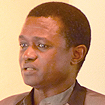
Published in 14 June 2018
Ogobara Doumbo (1956-2018)
Professor Ogobara K. Doumbo will have a lasting legacy both as a world class researcher in Tropical Medicine and parasitic diseases, and as an inspiring and elegant man having the energy necessary to develop the most important research team in West Africa. Modest and talented, Professor Ogobara K. Doumbo died on June 9, 2018, from complications of a surgery.
Professor Doumbo came from a village in the Circle of Koro, in the famous Dogon area of Mali. He kept from his roots a profound sense of reality and humanity. His willingness to learn lead him to move alone from his village to Bamako where he lived in his uncle family. He succeeded at school and university and decided to be a medical doctor and surgeon in remote area to be able to save people from his country.
At that time, he met Professor Philippe Ranque who built the first parasitology laboratory at the faculty of medicine of Bamako in 1972 and became Dr. Doumbo’s mentor. Thanks to him, “Ogo” went to Marseille, France, to get a second medical doctorate and to Montpellier, France, for his PhD. He completed his training with degrees in Immunology, biostatistics, and anthropology.
He went back to Bamako to succeed Professor Philippe Ranque. He founded the Malaria Research and Training Center (known as the MRTC) in 1992. He understood long before others that science in Africa required abroad training and secured position back to home institution. He sent his students to USA and France and welcomed them in Bamako after their PhD. He created an amazing network of colleagues and friends, researchers being seduced by his subtlety, keenness and extensive scientific culture.
He published hundreds of high level scientific papers and gave conferences and talks around the world. His scientific contribution is outstanding, and he received many national and international awards including the Christophe Mérieux Price, International Price from the French Institute of Medical Research and many others. He was elected as a member of the Malian Academy of Sciences, the French Academy of Medicine, and became International Fellow of the American Society of Tropical Medicine and Hygiene and board member of the International Federation of Tropical Medicine.
Apart from his academic contribution to the fight against tropical diseases, mostly malaria, he discreetly acted as a member of local, national and international non-governmental organisations to help poor people.
He was a great leader, a good husband and a good dad, as his wife said recently. Professor Doumbo was very keen to share his knowledge. People from his team was comparing his scientific culture to the rain: “when it’s raining everybody is wet”.
His energy, kindness and wise counsel will be remembered by many, especially the hundreds of younger academics and trainees from all over the world, he supported over his career. He didn’t have time to reach all his goals, but his team is rich of many successful and talented second to fifth generation scientists who will carry forward the banner of Malian tradition and International sciences.
Ogobara Doumbo's kindness, ideas and work ability also charmed his colleagues and partners of the IFTM Board, some of whom also benefited from his scientific collaboration in teaching and research activities in their countries. We shall miss him forever…
Professor Stephane Picot
Université de Lyon
* * *

Published in 14 April 2016
In Memoriam: Dr. Antonio D’Alessandro Bacigalupo
We sadly announce the passing of long time friend and colleague Antonio D’Alessandro in Buenos Aires, Argentina on February 28, 2016 where he had been in retirement since 2008. Antonio was born in Buenos Aires in 1926. Upon completing his Medical degree at the University of Buenos Aires in 1952, he began his graduate studies in the Department of Tropical Medicine at Tulane University receiving the MPHTM degree in 1957 and his Ph.D. in 1961. He was a member of the original group of students who studied under the tutelage of Professor Paul C. Beaver who succeeded Professor Ernest Carrol Faust as the Chair of the Department of Parasitology. After completing his doctoral studies, Antonio joined the faculty as the Scientist/Administrator of the U.S. NIH sponsored Tulane International Center for Medical Research and Training (ICMRT) in Cali, Colombia in association with the Universidad de Valle in Cali. He continued in that position for 23 years. The ICMRT program evolved into the Centro Internacional de Investigaciones Medicas (CIDEIM/ICIDR). His own research studies focused on American trypanosomiasis and polycystic hydatid disease. Following his return to Tulane in 1984, he participated in the teaching program of the Department of Tropical Medicine and served ably as Acting Chairman of the Department from 1985-1988. In 2008, after retirement as Emeritus Professor, Antonio and his wife Rachel moved back to Buenos Aires. While in Colombia, Antonio developed a deep admiration for Pre-Colombian art and amassed a magnificent collection of ceramics and other artifacts which he beautifully displayed in his residences. Recently, Antonio donated his collections to Fundacion Costantini, Museo de Arte Latinoamericano de Buenos Aires where it can now be enjoyed by the public. Antonio was preceded in death by his wife Rachel in 2012 whom he met while both were students at Tulane. They were married for 52 years. He is survived by daughter Marcella and son Antonio Juan both of whom live in the United States. Antonio will be deeply missed by friends and colleagues from around the world.
Lawrence R. Ash
Thomas C. Orihel
* * *
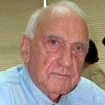
Jacinto Convit (1913-2014)
Venezuelan scientist and physician Doctor Jacinto Convit, pioneer in the development of a vaccine against leprosy, has died last Monday May 12th, 2014, at the age of 100. Dr. Convit, who was born in 1913 in Caracas, Venezuela was inspired since his early days in medical school to fight against the stigmatisation of leprosy patients, and devoted his life to work in the finding of an immunotherapeutic vaccine against this disease. In addition, he also pioneered in the development of a vaccine against cutaneous leishmaniasis. Dr. Convit was the founder of the Instituto de Biomedicina, a Pan American Health Organization Research and Training Center for Leprosy and other Tropical Diseases based in Caracas, where he dedicated much of his life on finding ways to improve the health of people in isolated and remote areas of Venezuela and around the world.
He was a full time Professor at the Faculty of Medicine of the Universidad Central de Venezuela and was awarded with the Prince of Asturias Prize in Science (1987), the French Legion of Honor, The Medal “Health for All” (2000), the Abraham Horwitz Prize for leadership in Inter-American Health, the Alfred Soper Award; he was nominated for the Nobel Prize in Medicine (1988), named “Hero of Health” by the Panamerican Health Organization and was also included among the 65 Caring Physicians of the World by the World Medical Association.
After 100 years of a life dedicated to humanity, Dr. Convit leaves an inspiring legacy for the years to come. His fearless fight against leprosy will remain a milestone in the history of Tropical Medicine. Those of us who have been fortunate enough to know and work with him have lost a dear friend and an inspiring mentor.
Alberto Panis-Mendolfi (New Haven, USA) and Santiago Mas-Coma (Valencia, Spain)
Published in 17 May 2014
* * *
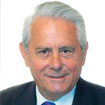
Pierre Ambroise-Thomas (1937 – 2014)
We have just learnt the death of our colleague and beloved friend, Professor Pierre Ambroise-Thomas (MD 1963, DSc 1969).
Pierre was Honorary Professor of Parasitology and Tropical Medicine at the Faculté de Médecine de Grenoble (France), and former Head of the Service of Parasitology-Mycology at the Hospital Medical School in the same city. He was Honorary President of the French Academy of Medicine, member of the French Academy of Pharmacy, and Honorary Member of the Brazilian Academy of Medicine. He has held several important administrative and political positions in many French Institutions devoted to the Health and Sciences as the Ministry of Health, the National Council of the Universities, and the Scientific Councils of CNRS and of ORSTOM (presently the IRD).
In addition, he was Member of the Board of European Societies of Tropical Medicine and Hygiene, Past President of the Société de Pathologie Exotique and member of several Tropical Medicine Societies. Acting as an Expert for the World Health Organization since 1974, he was appointed by the General Director to the Strategic Technical Advisory Group in charge of counseling the WHO in the Fight against neglected tropical diseases.
Professor Pierre Ambroise-Thomas taught in France (at Grenoble and many other universities) as well as in several foreign countries (in Europe, North Africa, Africa, and Asia). He was Honoris causa Professor at the Medical University of Shanghai, where he taught for almost 30 years. His research activities encompassed mainly the immunology of malaria, toxoplasmosis, and several other opportunistic parasitic and mycotic diseases, as well as the treatment of malaria by artemisinins combined therapies (ACT). These research works generated more than 350 publications in indexed journals, around 1,000 publication in French journals or communications at National and International Conferences and 14 books (including the volume “Infectious and parasitic diseases onto the Dictionary of the Académie Nationale de Médecine de France”).
Wishing to finalize the research at the bench with the work in the field, Professor Ambroise-Thomas has conducted – in more than 60 different countries and frequently to the WHO – numerous missions on the main parasitic diseases (malaria, amebiasis, schistosomiasis, onchocerciasis, and lymphatic filariasis). He organized the XVI International Congress on Tropical Medicine and Malaria in Marseille (France) in 2005.
He leaves behind his loved wife Colette, seven children and sixteen grandchildren.
Published in 16 March 2014
* * *
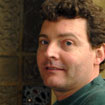
Alexandre Peixoto
With 50 years old, Alexander Afrânio Peixoto was at the height of his intellectual activity at the forefront of the research on genetics of insects in the Institute Oswaldo Cruz (IOC/Fiocruz). As Head of the Laboratory of Molecular Biology of Insects, Peixoto led studies on the behavioral aspects of vectors to tropical diseases, as Leishmaniasis, Malaria, Dengue Fever, and Yellow Fever. In parallel, he coordinated the Post-Graduate Strictu-sensu Program on Molecular and Cellular Biology at IOC, leading to the formation of MSc and PhD students in six lines of research. He passed away on February 10th, in a tragic accident in the city of Itaipava, Rio de Janeiro. Accompanying a friend, Alexandre went down a river next to the Mar de Espanha (Sea of Spain) on a canoe, a practice similar to rafting, when the boat collided with a rock and capsized, leaving him trapped under a waterfall.
For the scientific community, Alexandre leaves a legacy of more than 70 articles, 18 Masters of Sc and 14 PhD students formed under his orientation. The 16 years of exclusive dedication to the IOC had guaranteed him countless admirers, amongst pupils and partners of research, who joined his wife and two children in the moan of his early departure.
Described as having a good nature and being generous, Alexandre graduated in Ecology at the Universidade Federal do Rio de Janeiro (UFRJ) (Federal University of Rio De Janeiro), with Master Degree in Biological Sciences, PhD in Genetics for the University of Leicester, in the United Kingdom, and Post Doctorate for the Brandeis University, in the United States. He had also the title of Researcher Level 1A, and Head of the research group on Molecular Genetics of the Behavior in Insects to the Conselho Nacional de Pesquisa (CNPq - National Board of Research (CNPq), in addition to having received international recognition through the editions 2002 and 2007 of the International Program of Academic Research of the Medical Institute Howard Hughes. Reviewer of more than a set of ten scientific journals, including Plos One and Proceedings of the National Academy of Sciences of the United States of America, he was also member of the Publishing Advice of the Journal Memórias do Instituto Oswaldo Cruz (Memories of the Oswaldo Cruz Institute).
Published in 20 February 2013
* * *
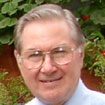
Neglected tropical diseases
In memoriam Dr Peter F. Beales
"It is with great sadness that we learned of the passing of our colleague and friend, Dr Peter F. Beales (WHO)".
http://www.who.int/neglected_diseases/memoriam_peter_beales/en/index.html
Published in 09 January 2013
Miss a session at the Annual Meeting? Order the entire meeting - or just a few key sessions and access them anywhere, anytime in the Online Library!
Whether you were in Atlanta and could benefit from a refresher, or you were unable to attend and want to stay up-to-date on the latest in tropical medicine and global health, purchase your Online Library, multimedia DVD or audio-only CD of sessions.
Interested in a few key sessions? You can purchase only those sessions you are most interested in at $15 per session.
 Online Library
Online Library
Members - $149
Non-Members - $199
Multimedia DVD - This option includes the Online Library.
Members - $199
Non-Members - $249
Click here to purchase.
The Online Library and DVD include audio-recordings of all sessions listed on the order form and speakers’ presentation materials (those who have consented to release their slides).